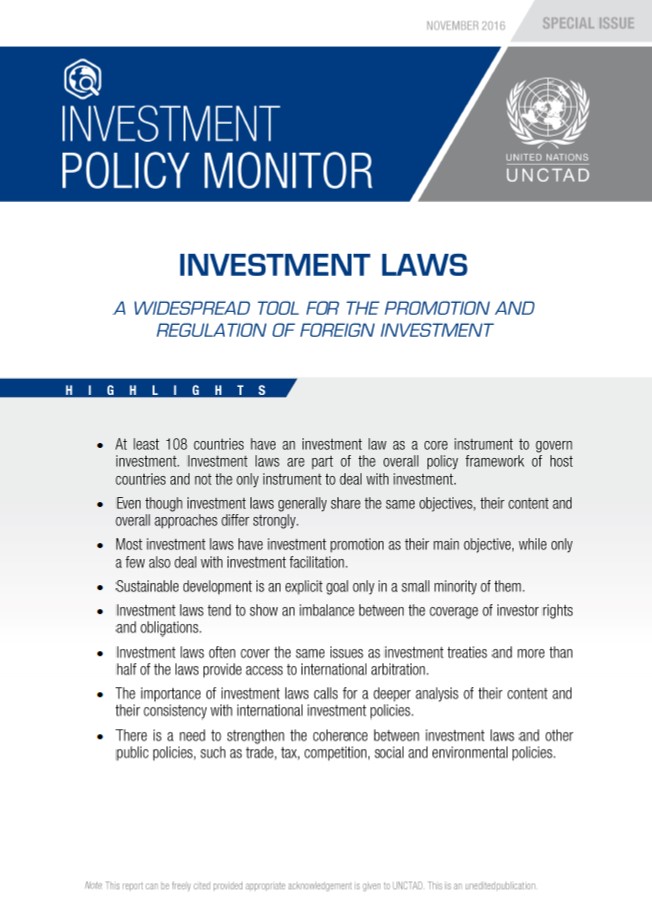Investment Laws: A Widespread Tool for the Promotion and Regulation of Foreign Investment
For many countries investments laws are a core policy tool to promote and regulate investment. Together with international investment agreements (IIAs), they constitute the basic legal framework for cross-border investment in many countries. Often, these laws and IIAs contain similar provisions.
UNCTAD research finds that at least 108 countries have an investment law as a core instrument to govern investment, almost all of which are either a developing country or an economy in transition. Even though investment laws generally share the same objectives, their content and overall approaches differ significantly.
Key findings from this study include:
- Most investment laws have investment promotion as their main objective, while only a few also deal with investment facilitation,
- Sustainable development is an explicit goal only in a small minority of them,
- Investment laws tend to show an imbalance between the coverage of investor rights and obligations,
- Investment laws often cover the same issues as IIAs and more than half of the laws provide access to international arbitration.
The importance of investment laws calls for a deeper analysis of their content and their coherence with other investment-related policies and international investment treaties.
















